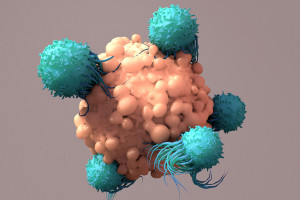The Coronavirus Vaccine Could Be Developed in Philly
Here are the local companies in the race to stop the spread of COVID-19.

Photo: Getty Images | FilippoBacci
There is some good news in the fight against the novel coronavirus. More than 100,000 people in the United States who were infected with the virus have since recovered and in many of those who’ve recovered, doctors have discovered coronavirus antibodies, proteins that can potentially be used to fight the virus. They’ve already begun testing those antibodies as a potential treatment option for the most vulnerable COVID-19 patients.
But as the World Health Organization (WHO) cautioned over the weekend, there is still no evidence that people who have recovered from COVID-19 and have antibodies are safe from being infected with the virus again.
The WHO’s guidance is yet another reason why scientists around the globe, and right here in Philadelphia, are ramping up efforts to develop a vaccine that could help prevent people from getting the virus in the first place. Here is an update on the efforts from Philadelphia-area companies working to develop a COVID-19 vaccine.
Inovio Pharmaceuticals
In February, shortly after the U.S. confirmed its first case of coronavirus, we told you about the Plymouth Meeting biotech company Inovio Pharmaceuticals. The company had then just received a $9 million grant from the Coalition for Epidemic Preparedness Innovations (CEPI) to develop a COVID-19 vaccine using its DNA medicine platform. Since then, the WHO has named Inovio one of three leading companies with a COVID-19 vaccine being tested in humans among more than 70 vaccine programs underway around the globe.
This month, Inovio dosed the first of 40 patients it hopes will participate in Phase I clinical testing of its COVID-19 vaccine candidate, INO-4800. The company will use its proprietary smart device, Cellectra to deliver the DNA medicine directly into patients’ cells to produce an immune response to the virus.
By fall, Inovio expects to have published human clinical trial results from the U.S., China and South Korea, and by the end of 2020, the company expects to have one million doses of its vaccine produced for more trials and even emergency use.
GlaxoSmithKline
Pharma giant GlaxoSmithKline (GSK), whose U.S. headquarters are located at the Philadelphia Navy Yard, recently announced a collaboration with the French pharmaceutical company Sanofi. The companies are working together to develop an adjuvanted vaccine for COVID-19. Adjuvants are ingredients added to vaccines to produce a stronger, lengthier immune response to disease.
Both companies are bringing their own unique technologies and expertise to the effort. Sanofi will contribute its S-protein COVID-19 antigen, a protein that stimulates the body’s immune response against the virus, and GSK will contribute its pandemic adjuvant technology. If successful, the adjuvanted vaccine will reduce the amount of vaccine protein required per dose, thereby allowing more vaccine doses to be produced and distributed to patients who need it most.
GSK and Sanofi expect to have a vaccine candidate in clinical trials by the second half of 2020 and potentially available to patients by the second half of 2021.
Integral Molecular
In March, we spoke with Ben Doranz, president and chief executive officer of Philly biotech company Integral Molecular, about how long it might take to develop a vaccine for COVID-19. Among the many tools scientists will need to discover a cure, Doranz said technology and resources (i.e. money) are most critical.
Integral already has the technology to make an impact. On the therapeutic side, Integral’s shotgun mutagenesis epitope mapping technology can determine which antibodies are most effective at killing viruses. For vaccine development, the company’s membrane proteome array platform can identify the receptors that allow viruses to invade cells. The technology has already been used to identify multiple receptors used by other viruses including Zika, Ebola, and Chikungunya.
Now, Integral also has the resources. This month, Integral received a $1 million grant from the National Institute of Allergy and Infectious Diseases (NIAID) to apply its technology platforms to the discovery of vaccines and therapeutics for COVID-19. The company will now be able to share its technologies with companies around the globe to improve, and hopefully, increase the speed of their vaccine development and therapeutic testing efforts.
Chimeron Bio
The race toward a cure for COVID-19 is an all-hands-on-deck effort — that includes smaller biotech companies like Chimeron Bio. In late March, we spoke with Chimeron’s chief executive officer Jolly Mazumdar about the company’s plans to leverage its proprietary ChaESAR particle, a self-amplifying RNA technology, to produce a quick immune response to COVID-19. If successful, the technology will be able to produce an amplified immune response using a very low dose.
Mazumdar says the company is preparing to begin testing its vaccine formulation in small animals next month.


